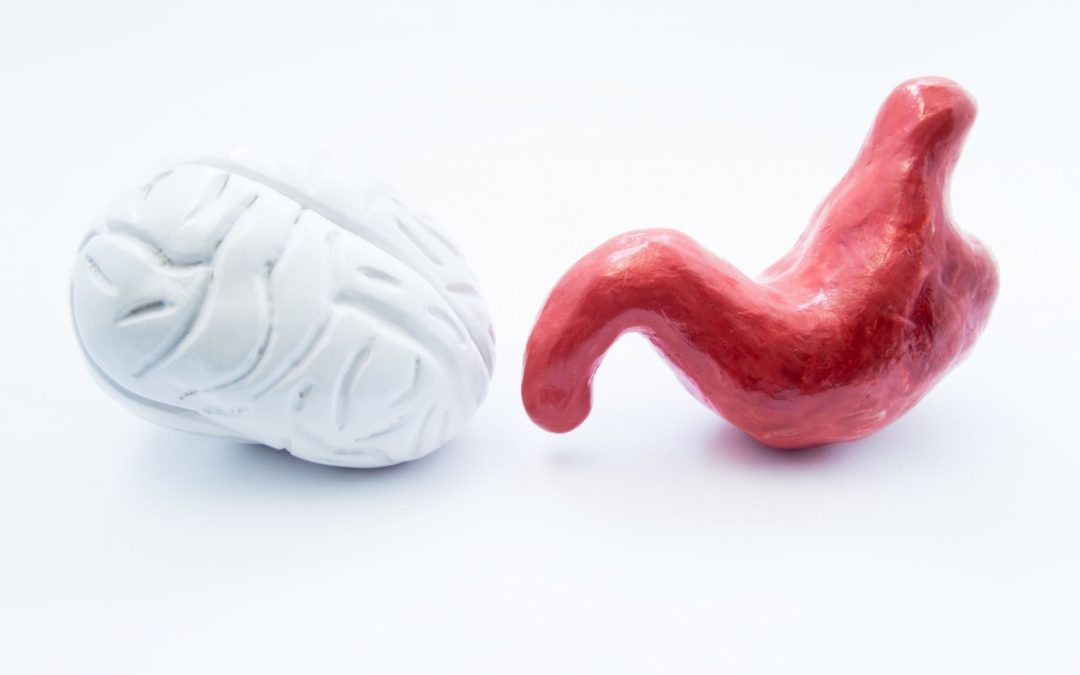“When we talk about health, we can’t just focus on heart health, or liver health, or brain health, and not whole health. You have to see the whole person and make use of the tools and resources that benefit minds and bodies together.” – Mental Health America
It is this connection between our minds and bodies that we here at Passage know all too well. We know how important it is for our kids and their mental health to have access to healthy foods, exercise, fresh air and beyond. But there is one area that we’re just learning about and we’re lucky to have a medical director who knows all about this topic. So, we enlisted Dr. Ammend to discuss the importance of the connection between our brain and our gut. Feel free to reach out to us if you have questions.
The Gut-Brain Connection: More Than “We Are What We Eat”
By David Ammend, MD
A few short years ago, I would cringe when I heard someone say the words “gut-brain connection.” It screamed fringe science, some off-shoot from immunizations-cause-autism or ADHD-is-only-a-food-allergy. But then I actually started to pay attention to what was being said. And it struck me that what they were saying evoked a line of thinking I had been having for years but had never been able to pull into a coherent whole: There is a connection between the increases we are seeing in brain dysfunction and the fact that our environment has been changing dramatically.
What is the “gut-brain connection?”
In its simplest form, the term refers to the many known ways in which a person’s digestive tract (the “gut” – especially the small and large intestines) and central nervous system (especially the brain) interact. The fact that they DO interact could be dramatically demonstrated by asking me to speak in front of a large crowd: My brain will immediately hate the idea, and in turn, my gut will threaten to rid itself of everything it contains. I will leave it to the reader to come up with his or her own list of colloquialisms involving fear and the clearing of one’s bowels. But suffice it to say, on some level the workings of the gut-brain connection are universally known, if not fully understood.
But who cares? The reason to care is that the attempts to understand the simple version of the gut-brain connection led to a better understanding of the links – neurological, biochemical, and hormonal – that exist between the two systems. And from there we began to see how things like neurocognitive impairment and mental illness can be affected by such things as diet, stress, trauma, and toxic exposures. And from THERE we can see how brain dysfunction can cause gut dysfunction (this is a two-way street) and consequently impact our general health. And from THERE we can…but I am getting ahead of myself.
Pulling the pieces together
The best overview that I have heard on this broad topic was in a presentation called “The Gut, the Brain, and Chemicals” by Andrew Campbell, M.D.* It was presented at an alternative and complementary medicine conference I attended in October 2015, and in part it attempts to explain the increase in some chronic conditions – including mental illnesses and neurodevelopmental disorders – that has been observed in recent years. While it is an oversimplification, I would summarize his line of thinking like this:
- The Gut has two characteristics that make it a very powerful actor in determining our health:
- A large surface area (the size of a tennis court) that is exposed to the outside world. Think about the digestive tract as essentially being exposed to our environment via our mouth. The things we eat (about a ton of food per year) bring “outside” substances – some of which are potentially harmful – into our bodies.
- A large number of neurons – more than exist in the spinal cord. And like the spinal cord, the nerves of the gut have intricate connections to the central nervous system. So, unlike Vegas, what happens in the Gut doesn’t stay in the Gut.
- The Gut also contains a massive community of microorganisms (bacteria, fungi, and viruses) that are collectively known as the human biome. It is a key mediator in the interaction between the gut and the brain. (Technically, the biome includes organisms that live on our skin and elsewhere in our body, but for this discussion, the part of the biome of most interest is that which is contained in the large intestine.) The organisms that make up our biome feed on nutrients in our gut, help break down molecules in our gut, and (write this down; it will be on the test!) produce neurotransmitters and hormones that can impact our own neurological and metabolic functioning. The fact that our gut microbiome contains approximately 4 times as many cells as we have human cells means that the potential for our microbiome to influence our health is great.
- Both the composition and function of the microbiome are affected by changes in our environment. Dr. Campbell emphasizes that the way that human beings think, feel, and function has evolved over millennia. But the environmental conditions in which we currently live have changed rapidly and significantly from those that determined our evolution. A few examples of changes in those environmental conditions include processing of food; the radical explosion of the number of chemicals that we are exposed to (very few of which have been studied for safety); and our inundation by nanoparticles that can trigger both digestive system and central nervous system inflammation.
The uber-oversimplified recap is this: Changes in our environment (food, chemicals) and new forms of stresses can change the composition of the microbiome, leading to changes in the neurotransmitters produced in the gut. The changes in neurotransmitters can effect changes in mood, behavior and neurological functioning. All of this is further complicated by the inflammatory changes that may be going on in our intestines and/or brains as a result of exposure to toxic substances, and the end result is manifested as disruptions of our physical and mental health. (I will resist the temptation at this point of launching into a discussion on the false separation of mental and physical health.)
Hard stuff.
I once had a professor that, when approaching a particularly difficult to understand topic, would lean in and say “This is hard stuff.” Well, this is hard stuff indeed. Much is yet to be learned about the interweaving of gut and brain health. We still do not understand exactly how particular substances or stressors impact brain functioning. There are many potential mediators that might determine whether exposure to a particular substance ends up causing health problems: the strength of the exposure (“dose”); the time in one’s life one is exposed; one’s genetic susceptibility to suffering harm from the particular substance; simultaneous exposure to other substances; the presence or absence of protective factors; and the relative state of health of one’s microbiome, to name but a few. Change just one of those factors, and you may very well change whether the substance has no real impact on health or causes devastating health problems.
Until we work through all of the complexities of the system summarized above, it remains difficult to say with certainty which substances or stressors must be considered toxic from those that are safe. That is, which substances or stressors impair our gut and brain functioning vs. those that do not. But as these details become clearer, there is hope that we can develop more effective ways of treating mental illness and cognitive dysfunction – or avoiding those problems altogether.
There is a lot of work left to be done. But what we know so far suggests that our changing environment and rapidly evolving lifestyles may be causing harm to us in ways that we have only recently begun to understand.
Plenty of food for thought there. Hard stuff.
*For an interview with Dr. Campbell on this topic, see https://www.ncbi.nlm.nih.gov/pmc/articles/PMC4712858/




Recent Comments